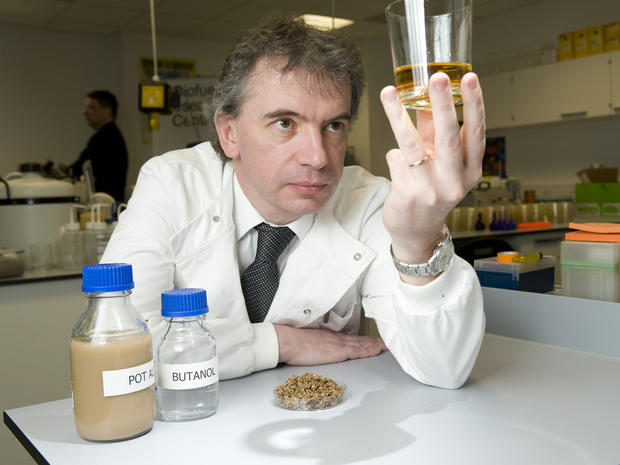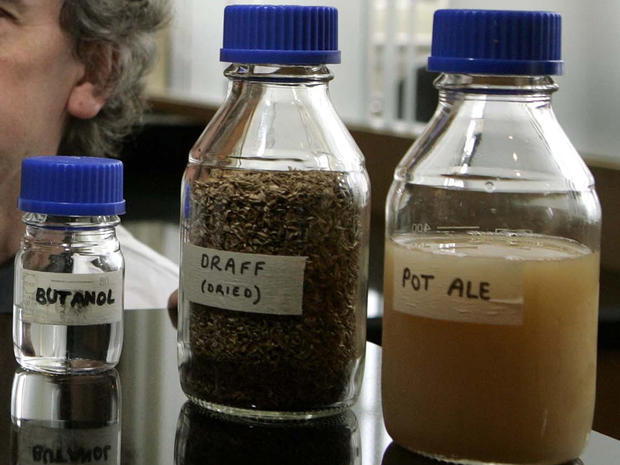Can whisky help solve the world's food and fuel shortages?
(CBS News) LONDON - Can whisky help solve the world's shortages of both food and fuel? A team of scientists in Scotland is banking on it.
The people behind Celtic Renewables have invested five years of research and now a business venture in the idea that the waste products from whisky distilleries can be converted into biofuel to power cars and trucks.
Mark Simmers, CEO of the company founded last year, says the biobutanol Celtic Renewables makes from whisky waste is not only better suited to use as vehicle fuel than the bioethanol commonly pumped now, but it also dodges the food vs. fuel quandary facing the biofuel industry at large.
Scientists aim at seaweed powered cars
Activists strip to protest aviation biofuel
Reported breakthrough in biofuel processing
Speaking from the whisky capital of the world, Simmers said there were two things driving him and his colleagues - who started out researching the whisky waste-to fuel idea at Edinburgh Napier University: finding a "large, guaranteed feedstock that is not food," and also finding a reliable, cheap, local source of fuel for vehicles in remote parts of Scotland where gas is expensive.
Simmers describes biobutanol as an "advanced" biofuel compared to bioethanol. It can be used in any unmodified vehicle on the road, where bioethanol requires some modifications.
Butanol also mixes better at a chemical level with conventional petroleum products, meaning a higher ratio of biofuel to petroleum can be used when mixing gas for consumers at the pump.
The other big plus, as mentioned above, is that no corn or other crops are needed to produce the whisky-waste biobutanol. One of the biggest challenges to the biofuel industry comes from organizations fighting its production on the grounds that farmland in poor nations - where cheap food is in short supply - is being used to grow crops expressly for biofuel production, which pays better than food production.
Celtic Renewables is still in the trial phase of its production, but it hopes to be producing biobutanol for the commercial market by the end of next year.
The company has formed a partnership, which began during research at Edinburgh Napier University, with the Tullibardine distillery in Perthshire, Scotland.
Douglas Ross, master distiller at Tullibardine, says there's not much prospect for his company or other distillers in Scotland to make big profits from the re-purposing of their waste products, but it could save them some cash eventually.
Tullibardine does have to pay for the byproducts of distillation - a liquid called pot ale and the spent oats, known as draff - to be removed. If they can be converted into biofuel, "so much the better," says Ross.
He's hopeful that, once Celtic Renewables is up and running commercially, Tullibardine might get a small amount of money in exchange for its waste products, but he would also be happily take biobutanol to run the distillery's vehicles.

